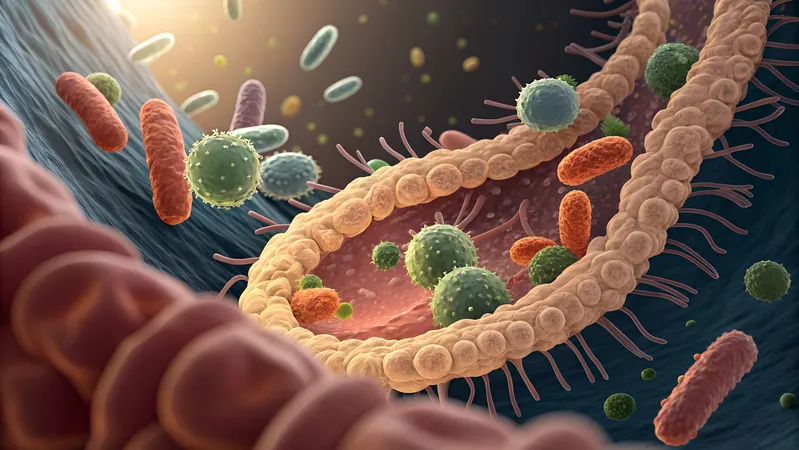
Unlocking the Secrets of Gut Microbes: A Game-Changer for Cancer Treatment?
2025-09-02
Author: Mei
Microbes in Tumors: The New Frontier in Cancer Therapy
Imagine if the tiny microbes living within cancerous tumors could hold the key to understanding patient prognosis and treatment effectiveness. Exciting new research from microbiologists at Nankai University in Tianjin, China, suggests that tumor microbiota might be just that—powerful players in the battle against cancer.
In their groundbreaking study published in *Microbiology Spectrum*, researchers identified a core group of 15 bacterial genera that could predict outcomes across six different types of gastrointestinal (GI) tumors. This discovery underscores the potential for microbial patterns to inform treatment decisions and patient assessments.
The Alarming Rise of GI Cancers
With GI cancers accounting for a staggering one quarter of new cancer diagnoses and one third of cancer-related deaths globally, the urgency to find improved treatment strategies has never been greater. Alarmingly, these cancers are increasingly affecting individuals under 50 years old. As Dr. Xingzhong Liu, a co-leader of the study, points out, the microbial signatures hidden within these tumors could be the key to enhancing therapeutic responses.
Decoding the Microbiome's Influence
Dr. Liu argues that the microbiome within tumors is more than just a passive existence; it's a critical component that carries vital prognostic information. Previous research has linked individual microbes to the development and treatment response of specific cancers. For example, certain bacteria like Staphylococcus and Escherichia coli have been shown to influence breast and colon cancer outcomes, respectively. However, this new research broadens the scope, connecting microbial patterns to metastatic pathways across various GI tumors.
Key Insights and Implications for Treatment
The researchers examined over 1,600 tumor tissue samples alongside 116 adjacent normal tissue samples, discovering significant connections between microbial populations and both metastatic risk and immune responses. Notably, tumors with higher levels of Granulicella bacteria were linked to diminished immune activity, while a genus known as Dorea correlated with protective immune responses and lower metastasis risks.
Using these findings, the team developed a microbiota-based risk score capable of predicting patient survival rates and likelihood of metastasis, as well as responses to immunotherapies. The next step involves further validating these insights to unlock the mechanisms behind these connections.
A New Era of Personalized Cancer Treatment?
Dr. Liu envisions their model as a supplementary tool to traditional staging and genomic markers, providing a new layer of insight into patient risks. This innovative approach could guide therapy selection, especially in cases where conventional immunotherapies may be less effective.
As research continues, the question remains: Could these microscopic allies in our bodies ultimately transform cancer treatment? The potential is limitless, and the future looks promising.




 Brasil (PT)
Brasil (PT)
 Canada (EN)
Canada (EN)
 Chile (ES)
Chile (ES)
 Česko (CS)
Česko (CS)
 대한민국 (KO)
대한민국 (KO)
 España (ES)
España (ES)
 France (FR)
France (FR)
 Hong Kong (EN)
Hong Kong (EN)
 Italia (IT)
Italia (IT)
 日本 (JA)
日本 (JA)
 Magyarország (HU)
Magyarország (HU)
 Norge (NO)
Norge (NO)
 Polska (PL)
Polska (PL)
 Schweiz (DE)
Schweiz (DE)
 Singapore (EN)
Singapore (EN)
 Sverige (SV)
Sverige (SV)
 Suomi (FI)
Suomi (FI)
 Türkiye (TR)
Türkiye (TR)
 الإمارات العربية المتحدة (AR)
الإمارات العربية المتحدة (AR)